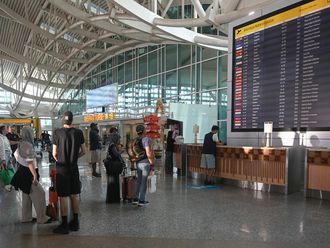
Sydney: An Australian woman rescued from a squalid Syrian detention camp was due to face court Friday on charges linked to her former husband's role within the Daesh (Islamic State) group.
Mariam Raad was repatriated in October as part of a humanitarian mission to free Australian women and children from the notorious camps at Al-Hol and Roj.
The women were in most cases the wives of vanquished Daesh (IS) fighters, who said they were forced or tricked into following their husbands to Syria.
Australian police, who arrested Raad on Thursday, allege the 31-year-old knew her former husband Muhammad Zahab was a high-profile Daesh recruiter and had "willingly travelled to the conflict region".
Raad has been charged with travelling to parts of Syria that were controlled by Daesh - a crime under Australian law - and could face up to 10 years in prison if convicted.
"We have zero tolerance for Australians, or anyone, who seek to commit acts of violence or extremism, and those considering doing the wrong thing will come under our notice," counter-terrorism commander Mark Walton said.
Zahab, a former math teacher in Sydney, was believed to have been killed in an airstrike in 2018, Australian Federal Police said.
Raad returned to Australia alongside three other women and 13 children.
It was the first in a series of planned missions to bring back about 20 Australian women and 40 children, who have been detained in Kurdish-controlled northeastern Syria since the 2019 collapse of the Daesh "caliphate".
The repatriation of the so-called " Daesh brides" has been controversial in Australia, where some politicians have claimed the women pose a risk to national security.
Others, such as Human Rights Watch, have praised the government for rescuing Australian citizens from "horrific" conditions.
After being repatriated, Raad settled in Young, a small town about 370 kilometres (229 miles) west of Sydney.












